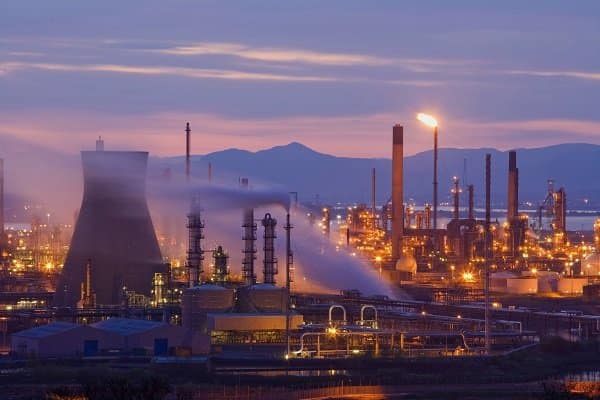Wales and West Utilities has set out their latest evidence on how innovation can be used to help to meet the UK Government’s net zero target.
The future of energy generation, distribution and uses remains uncertain, but it is clear that new technology and processes are needed to meet the required changes to the energy system.
Gas keeps the country running and accounted for just under 40% of the energy mix in 2022, in addition to oil at 36%, electricity through wind (4%) and solar (1%). 40% of electricity is supplied by the gas network and relies on the network for resilience during periods of high demand.
To reach net zero emissions, gas must be replaced with a cleaner energy source that can still meet periods of peak demand and strengthening energy security.
WWU pursued a range of innovation projects throughout 2022/23 pushing to provide new data and technology that could help accelerate the transition to net zero and transform the UK’s energy system.
Over 2022/23, WWU started 19 new projects, funded by a total investment of £2.2 million, including £1.5m of Network Innovation Allowance funding.
Findings of the projects have been published online to allow other networks and partners to build upon learnings. WWU are encouraging innovators to put forward their ideas for funding consideration.
Sian Rowlands, Innovation Manager at Wales & West Utilities said, “The Annual Innovation Report demonstrates the extensive work we’ve been doing to provide invaluable evidence to drive change in the energy sector.
“This year we’ve included a wider view of our portfolio; showing how our projects build on each other and the value they provide in the journey to a net zero energy system.
“More than ever, we’re inviting innovators to put forward their ideas. Thanks to NIA, almost half (47%) of our projects were undertaken in collaboration with other networks. Collaboration sits at the heart of the solution, and at WWU, we’re determined to be a part of that solution.”
The 2022/23 project pipeline included:
Hyline Cymru: HyLine Cymru would see a new dedicated hydrogen pipeline built across South Wales, linking hydrogen production with industrial demand. This infrastructure could allow industrial customers to move to hydrogen as early as 2030, offering a path for decarbonisation and stimulating the hydrogen economy, in turn both protecting and creating new jobs.
Hydrogen for aviation
The aviation sector currently contributes to 2.5% of global CO2 emissions and 7% of UK greenhouse gas emissions. WWUs patch is home to leading aerospace businesses and this project has provided scope on how gas networks can support the decarbonisation of the sector using hydrogen.
HyRes
HyRes is a national partnership with universities and UK Research and Innovation (UKRI), exploring how we deliver hydrogen and alternative liquid fuel technologies that are environmentally and economically sustainable. South Cornelly in Wales was chosen to pioneer a community-led energy transition by blending hydrogen into the existing gas network and supplying it to local farmers and industries.
Green hydrogen production is primarily created through electrolysis, which requires green electricity and purified water. NextGen Electrolysis – Wastewater to Green Hydrogen, fills a gap in research on how operational barriers could be lowered by using water that is less pure, as well as cost reduction for consumers.
Assessing options for salt cavern storage
Hydrogen can be easily stored and used for when renewable electricity can’t meet demand – for example, when the sun isn’t shining, and the wind isn’t blowing. WWU are looking into locations for salt cavern storage as a potential solution to meet this demand.
2023/24 projects
38 projects are planned for the rest of 2023 into 2024, ahead of a significant further pipeline. WWU will concentrate on areas that will help to deliver a just energy transition and accelerate decarbonisation for a range of sectors.


Leave a Comment